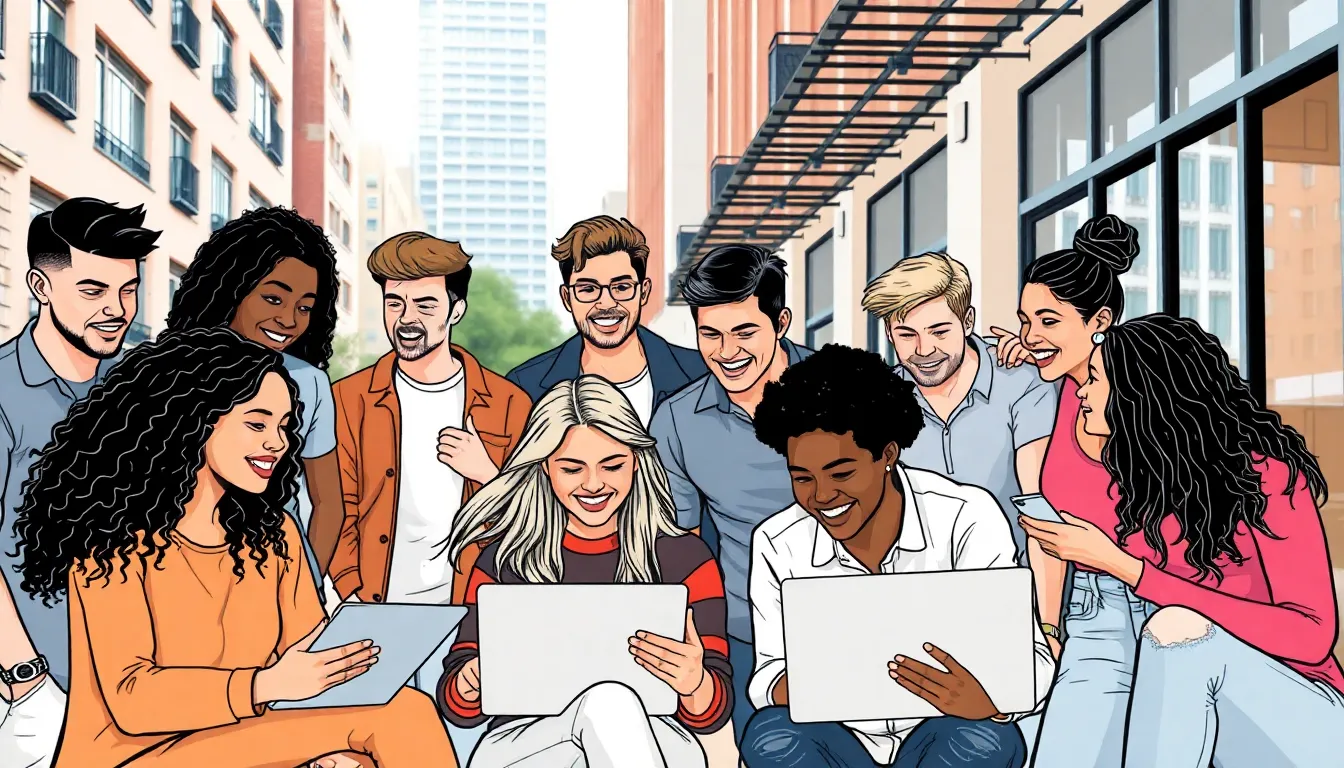In a world that glorifies the grind, hustle culture memes have taken social media by storm, blending humor with a dose of reality. These memes poke fun at the relentless pursuit of success, often portraying the absurdity of working yourself to the bone while neglecting self-care and balance. With a witty twist, they capture the essence of a generation caught between ambition and burnout.
But why do these memes resonate so deeply? They hold a mirror to society’s obsession with productivity, making light of the often ridiculous lengths people go to in their quest for achievement. As the hustle culture continues to evolve, these memes serve as both a comedic relief and a subtle reminder that sometimes, it’s okay to take a break—preferably with a snack in hand and a laugh at the latest meme.
Table of Contents
ToggleUnderstanding Hustle Culture Meme
Hustle culture memes illustrate a critical response to the societal pressure surrounding constant productivity. These memes capture the absurdity of prioritizing work over well-being, delivering comedic commentary on contemporary cultural norms.
Definition of Hustle Culture
Hustle culture emphasizes relentless hard work and dedication to career advancement. Many perceive it as glorifying the idea of sacrificing personal time for professional success. This mentality promotes nonstop productivity, often celebrating individuals who forego rest to achieve their goals. The phenomenon breeds a competitive atmosphere where achievements often overshadow mental health. Individuals frequently express a feeling of inadequacy when not engaging in hustle culture practices. Authenticity and self-care often take a backseat in this demanding landscape.
Origins of the Meme
Hustle culture memes emerged in response to the increasing glorification of busyness in social media. Various platforms, including Instagram and Twitter, paved the way for these satirical visuals. Initially, the meme’s roots trace back to the millennial generation’s struggles with work-life balance. As burnout statistics rose, so did the popularity of these memes, which cleverly highlighted the absurdity of overworking. Memes resonated with users who recognized the importance of rest amidst ambition. They spread rapidly, becoming embedded within digital conversations about the pursuit of success versus personal fulfillment.
The Impact of Hustle Culture Meme

Hustle culture memes create a significant impact on perceptions of work and self-care. They both critique the relentless pursuit of success and highlight the need for balance in life.
Positive Aspects
Memes reflecting hustle culture can foster motivation and ambition. Sharing these memes creates a sense of community among like-minded individuals striving for success. They inspire people to challenge limits and embrace hard work. Studies show that humor can enhance resilience, helping individuals cope with stress. Engaging with these memes often encourages conversations about achieving goals while appreciating the journey. Motivational messages within these memes can drive productivity and enhance focus.
Negative Consequences
Despite their humor, hustle culture memes can perpetuate unhealthy work habits. They might promote the idea that rest equates to laziness, leading to burnout. Many individuals feel pressured to conform to an endless cycle of productivity. This pressure often results in neglecting mental health and personal well-being. Burnout statistics reveal an alarming trend among those who internalize hustle culture ideals. Individuals frequently compare themselves to unrealistic standards set by these memes, resulting in feelings of inadequacy. Acknowledging the negative impact of these memes is essential for maintaining overall well-being.
The Role of Social Media
Social media plays a significant role in the proliferation of hustle culture memes. Platforms like Instagram, Twitter, and Reddit deliver these memes to wide audiences, combining humor with relatable struggles.
Platforms Driving the Meme
Instagram serves as a primary hub for hustle culture memes, with its visual format amplifying impactful messages. Twitter complements this by allowing quick exchanges that capture the essence of relentless productivity. Reddit communities often engage in deeper discussions around these memes, analyzing their implications on work-life balance. Together, these platforms foster an ecosystem where hustle culture thrives and spreads rapidly.
Influence on Young Audiences
Young audiences, particularly millennials and Gen Z, resonate deeply with hustle culture memes. The humor within these visuals encourages conversations about balancing ambition and self-care. Many young individuals relate to the pressure of constant productivity, making these memes relatable and appealing. These shared experiences can also lead to discussions about mental health awareness. A collective understanding unites them, fostering both motivation and a critical look at the consequences of hustle culture.
Critiques of Hustle Culture
Hustle culture evokes significant critiques, particularly regarding mental health and work-life balance.
Mental Health Concerns
Mental health issues often arise from the pressures inherent in hustle culture. Individuals frequently experience anxiety and depression as they strive to meet unrealistic expectations. According to the World Health Organization, stress linked to excessive work can lead to burnout, which has serious repercussions on well-being. Feelings of inadequacy plague people who don’t conform to relentless productivity standards. These pressures can distort self-worth, leading to a cycle of overworking and underplaying the importance of rest. Humor in hustle culture memes may offer temporary relief, yet it often fails to address these deeper mental health challenges. Awareness and open discussions about mental health need to take precedence to combat the damaging effects recorded by numerous studies.
Work-Life Balance Issues
Work-life balance suffers considerably under hustle culture’s influence. The glorification of overwork pushes many to prioritize professional goals over personal life. Statistics show that 63 percent of employees express feeling pressured to skip breaks and extend working hours. This relentless pursuit often results in strained relationships and neglected personal interests. Spiritual, emotional, and physical well-being may diminish in this nonstop chase for success. Many individuals find it challenging to disconnect from technology, leading to blurred lines between work and home life. Encouraging a cultural shift towards valuing downtime is essential for cultivating a healthier balance. Promoting well-being alongside ambition remains a crucial step in addressing work-life concerns.
Hustle culture memes serve as a powerful reflection of society’s obsession with productivity and the often detrimental impact it has on mental health. While they can inspire motivation and community among those striving for success, they also risk perpetuating unhealthy work habits and unrealistic standards. As awareness of these issues grows, it’s vital for individuals to recognize the importance of balancing ambition with self-care. Embracing downtime and fostering open conversations about mental health can help combat the negative effects of hustle culture. Ultimately, these memes remind everyone that success shouldn’t come at the expense of well-being.





